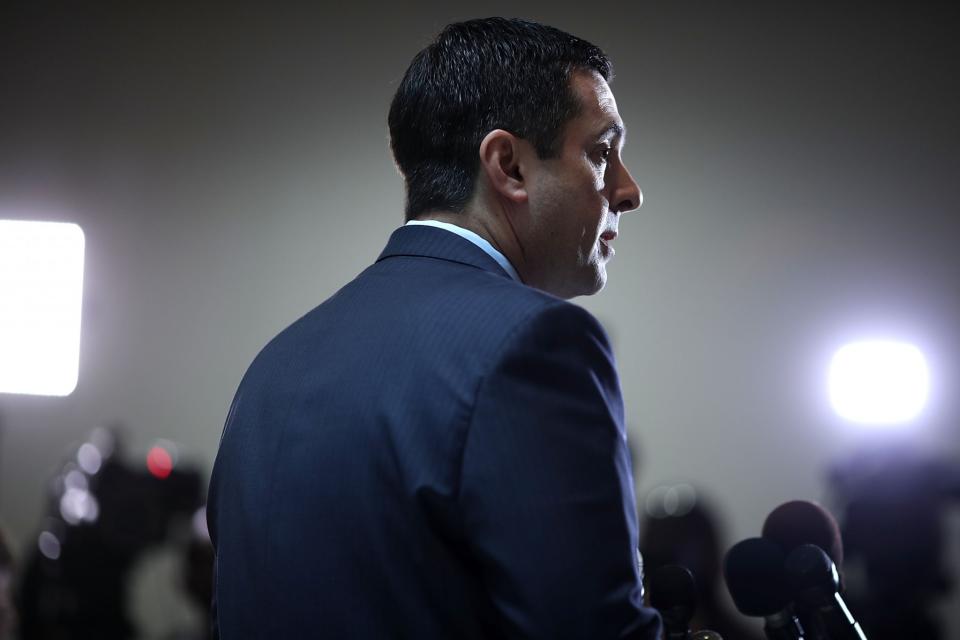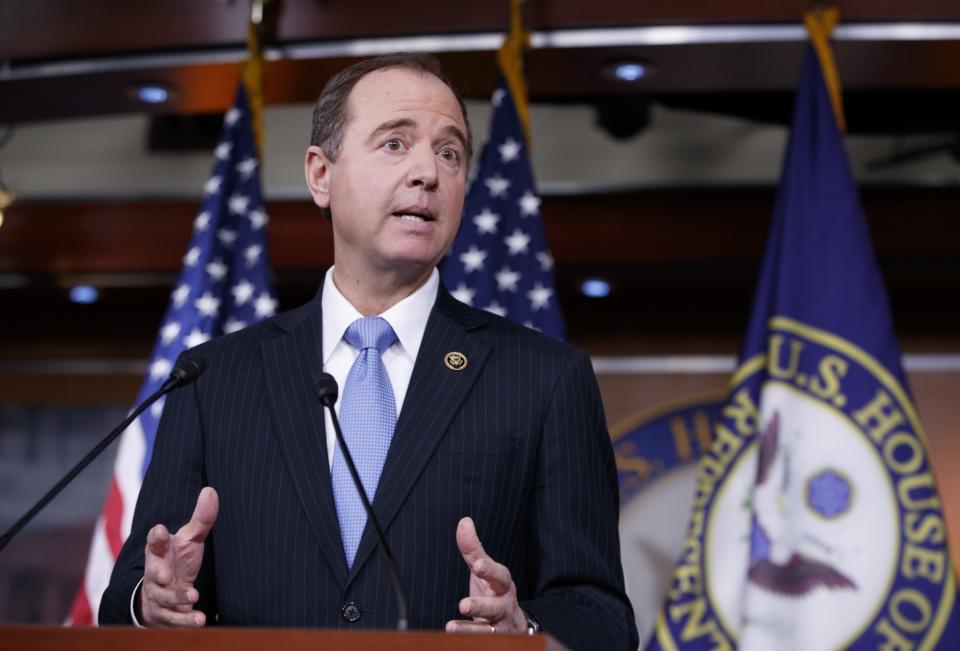GOP intelligence panel chair: Flynn did U.S. a ‘big favor’
WASHINGTON — House Intelligence Committee chair Rep. Devin Nunes, R-Calif., said today that Lt. Gen. Michael Flynn, the national security adviser fired by President Trump, may have done the country a “big favor” if he signaled to the Russian ambassador that sanctions imposed by President Barack Obama after the Russian cyberattack on Democratic Party officials would be lifted once President Trump took office.
The comments by Nunes, a vocal defender of the Trump White House, seemed to be the strongest indication to date that Flynn may have sought to undercut Obama’s actions, giving private assurances to Russia’s ambassador to the United States, Sergey Kislyak, that punitive measures just imposed by the then-president would go away under Trump.
Nunes told reporters at a press conference that he had been briefed on the contents of intercepted conversations between Flynn and Kislyak, but had not seen the transcript of those calls. Still, he dismissed the idea that Flynn had done anything wrong, and said that the punitive actions taken by Obama over the election hack were “petty” and “not taken seriously” by Moscow.

“If the discussions occurred around ensuring there was no overreaction by the Russian government, so the new administration could do, like all the other previous administrations who think they can work with [Russian President Vladimir] Putin … if that’s what General Flynn did, to keep the lines of communications open and make sure the Russians didn’t overreact … that did us a big favor, and we should be thanking him,” Nunes said.
“If that’s what was said, I don’t know what the problem with that would be,” Nunes added. “That’s exactly what he [Flynn] should be doing.”
When a reporter noted that at the time of the key phone call between Flynn and Kislyak last Dec. 29, Obama and not Trump was the president, Nunes abruptly dismissed the question.
“Are you a Logan Act guy?” Nunes shot back at the reporter, referring to the never-used 18th century law that prohibits private citizens from conducting their own foreign policy.
Nunes’ innocuous description of the Flynn phone call was later strongly rejected by Rep. Adam Schiff, the ranking Democrat on the intelligence panel, underscoring the partisan rift within Congress over the investigations into Russian hacking.
“The reason why the conversations with Flynn are so significant is that they involve potentially an administration official, or soon to be, undermining the sanctions on the very interference in our political affairs” by the Russian government.
“It goes right to the heart of the Russian interference,” said Schiff, adding that Flynn had misled Vice President Mike Pence about the phone call and “certainly” needs to testify before the committee about what took place.
The main purpose of Nunes’ press conference Monday was to reinforce White House attempts to knock down a New York Times story about reported communication between the Trump campaign and Russian intelligence officials. The newspaper has reported that U.S. intelligence officials have collected phone records and other evidence of multiple contacts during the 2016 election campaign.
“As of right now, I don’t have any evidence of any phone calls,” Nunes told reporters. “It doesn’t mean they don’t exist. … What I’ve been told by many folks is that there’s nothing there.”

Nunes did not specifically identify the “many folks” who had told him this, but he did acknowledge that the panel has not yet been fully briefed by FBI Director James Comey on the status of the bureau’s ongoing investigation into Russian interference in the election. Schiff hinted that he is concerned that Comey may be resisting giving the intelligence panel “fulsome” cooperation in its investigation, presumably because the bureau’s own probe is still ongoing.
Nunes’ comments about Flynn’s phone call seem to support one theory about the surprise announcement by Putin that he would not respond to President Barack Obama’s expulsion of 35 Russian diplomats from the United States. Obama announced the expulsions at the time he imposed financial sanctions on four senior Russian military intelligence officials and several private Russian contractors who were believed to have played a role in the cyberattack on the Democratic National Committee and other Democratic Party and Hillary Clinton campaign officials.
Putin’s response on Dec. 29 was especially surprising because it came shortly after Russia’s foreign minister, Sergey V. Lavrov, had called for Russia to retaliate in response to Obama’s actions.
Instead, Putin said that the Russians were “not going to downgrade ourselves” by engaging in such tit-for-tat diplomacy. “In our future steps on the way toward the restoration of Russia-United States relations, we will proceed from the policy pursued by the administration” of President Trump, Putin said.
_____
Read more from Yahoo News:


